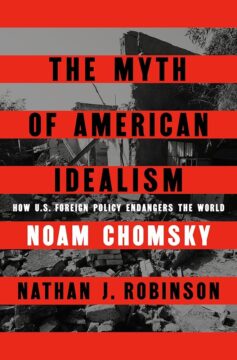Noam Chomsky at Literary Hub:
 The basic principles of contemporary American strategy were laid out during World War II. As the war came to its end, American planners were well aware that the United States would emerge as the dominant power in the world, holding a hegemonic position with few parallels in history. During the war, industrial production in the US more than tripled; meanwhile, its major rivals were either severely weakened or virtually destroyed.
The basic principles of contemporary American strategy were laid out during World War II. As the war came to its end, American planners were well aware that the United States would emerge as the dominant power in the world, holding a hegemonic position with few parallels in history. During the war, industrial production in the US more than tripled; meanwhile, its major rivals were either severely weakened or virtually destroyed.
The US had the world’s most powerful military force. It had firm control of the Western Hemisphere—and of the oceans. High-level planners and foreign policy advisers determined that in the new global system the US should “hold unquestioned power” while ensuring the “limitation of any exercise of sovereignty” by states that might interfere with its global designs.
Winston Churchill captured the dominant sentiment when he said that “the government of the world must be entrusted to satisfied nations,” because rich countries had no “reason to seek for anything more,” whereas “if the world-government were in the hands of hungry nations there would always be danger.” Leo Welch of the Standard Oil Company expressed a similar aspiration when he said the US needed to “assume the responsibility of the majority stockholder in this corporation known as the world,” and not just temporarily, but as a “permanent obligation.”
More here.
Enjoying the content on 3QD? Help keep us going by donating now.
